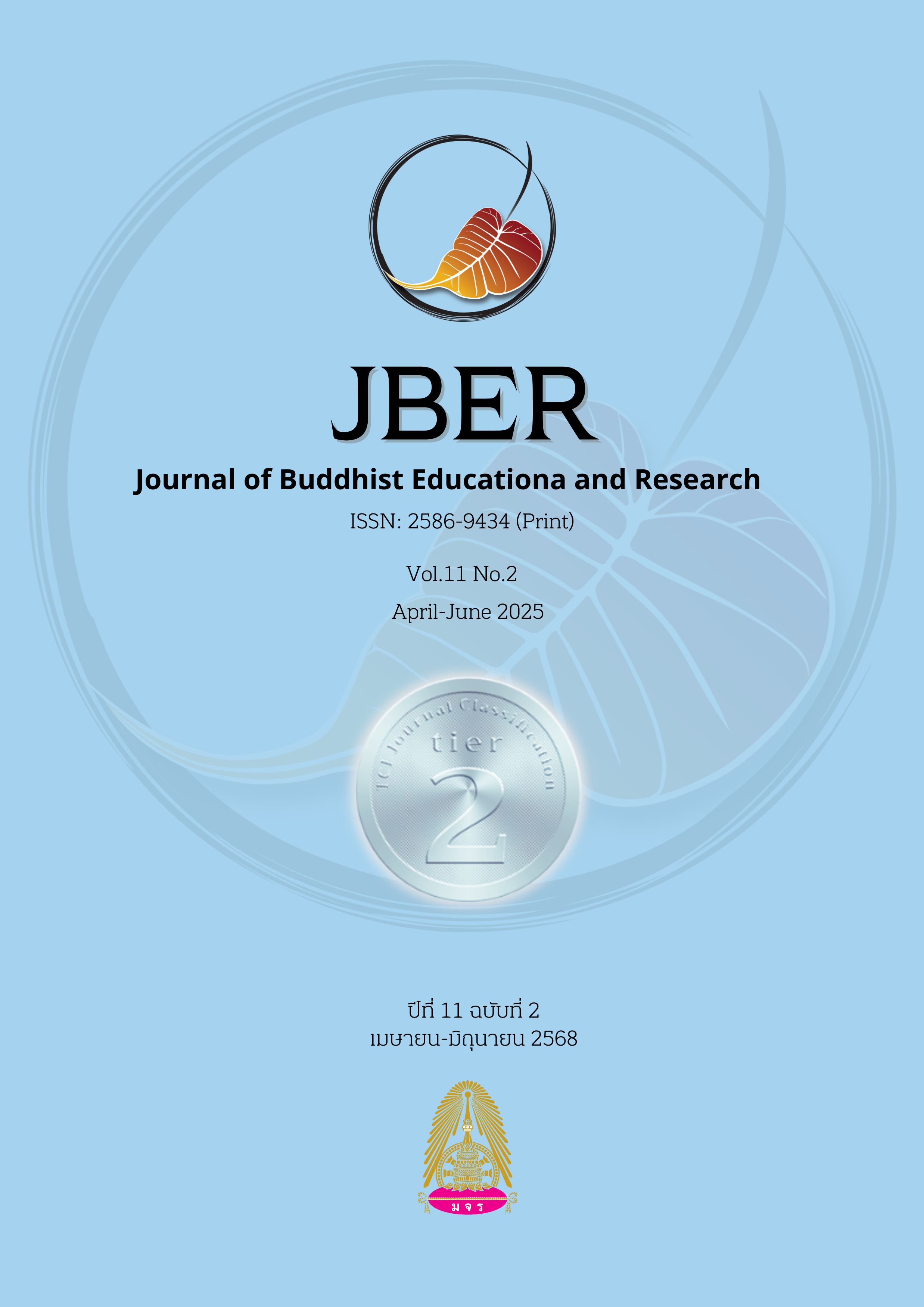Correlation Between Perception of Principal’s Leadership, Welfare Expectation and Work Performance Attention of Contract Teachers in Secondary School District Office, Bangkok Area 2
Keywords:
Perception of administrators' leadership, expectations of school welfare, teachers' work intentionAbstract
This research aimed to 1) find the relationship between the leadership perception of administrators, the expectation of school welfare, and the work intention of contract teachers in schools under the Office of the Secondary Education Service Area 2, Bangkok, and 2) predict the work intention by the leadership perception of administrators and the expectation of school welfare of contract teachers in schools under the Office of the Secondary Education Service Area 2, Bangkok. The sample group of the research were 130 contract teachers in schools under the Office of the Secondary Education Service Area 2, Bangkok. The research instruments were 3 summated rating scales with reliability (α) 768 to .775. The statistics used for data analysis were percentage, mean, standard deviation, Pearson's product moment correlation coefficient, and stepwise multiple regression analysis. The research results found that 1) The perception of administrators' leadership, the expectation of school welfare, and the intention to work had a low to moderate relationship. 2) The perception of administrators' leadership and the expectation of school welfare predicted teachers' intention to work by 33%. 3) The perception of administrators' leadership and the expectation of school welfare together predicted teachers' intention to work in terms of readiness to work by more than 25%. 4) The perception of administrators' leadership and the expectation of school welfare together predicted teachers' intention to work in performing assigned tasks with perseverance and teachers' intention to work in terms of completing various tasks with dedication by less than 25%.
References
โกศล มีคุณ และ ณรงค์ เทียมเมฆ. (2545). ผลของการฝึกใช้เหตุผลเชิงจริยธรรมที่มีต่อจิตลักษณะและพฤติกรรมจริยธรรมของครู. ทุนอุดหนุนการวิจัย โครงการแม่บท: การวิจัยและพัฒนาระบบพฤติกรรมไทย. กรุงเทพฯ: สำนักงานคณะกรรมการวิจัยแห่งชาติ.
ณัฐธิดา สุระเสนา. (2564). ความสัมพันธ์ระหว่างภาวะผู้นำของผู้บริหารโรงเรียนกับแรงจูงใจในการปฏิบัติงานของครูในสังกัดสำนักงานเขตพื้นที่การศึกษามัธยมศึกษา เขต 21 [วิทยานิพนธ์ปริญญาการศึกษามหาบัณฑิต, มหาวิทยาลัยราชภัฏสกลนคร].
วิเชียร ธรรมาธร. (2547). ปัจจัยทางจิตสังคมที่เกี่ยวข้องกับพฤติกรรมการทำงานอย่างมีจริยธรรมด้านอุทิศตนของข้าราชการกรมกำลังพลทหารอากาศ. วารสารจิตพฤติกรรมศาสตร์: ระบบพฤติกรรมไทย, 1(2), 97–114.
อมรา พิมพ์สวัสดิ์. (2562). ภาวะผู้นำของผู้บริหารสถานศึกษาที่ส่งผลต่อประสิทธิผลการปฏิบัติงานของครู สังกัดสำนักงานเขตพื้นที่การศึกษามัธยมศึกษา เขต 31 [วิทยานิพนธ์ปริญญาการศึกษามหาบัณฑิต, มหาวิทยาลัยราชภัฏนครราชสีมา].
อรพรรณ เทียนคันฉัตร. (2560). ภาวะผู้นำเชิงพฤติกรรมของผู้บริหารสถานศึกษาที่ส่งผลต่อแรงจูงใจในการปฏิบัติงานของครู [วิทยานิพนธ์ปริญญาการศึกษามหาบัณฑิต, มหาวิทยาลัยราชภัฏรำไพพรรณี].
Prochaska, J. O., & DiClemente, C. C. (1984). The transtheoretical approach: Crossing traditional boundary of change. Homewood, IL: Dow Jones-Irwin.
Bandura, A. (1997). Self-efficacy: The exercise of control. New York: W.H. Freeman.
Maslow, A. H. (1954). Motivation and personality. New York: Harper & Row.
Downloads
Published
How to Cite
Issue
Section
Categories
License
Copyright (c) 2025 Journal of Buddhist Education and Research (JBER)

This work is licensed under a Creative Commons Attribution-NonCommercial-NoDerivatives 4.0 International License.





